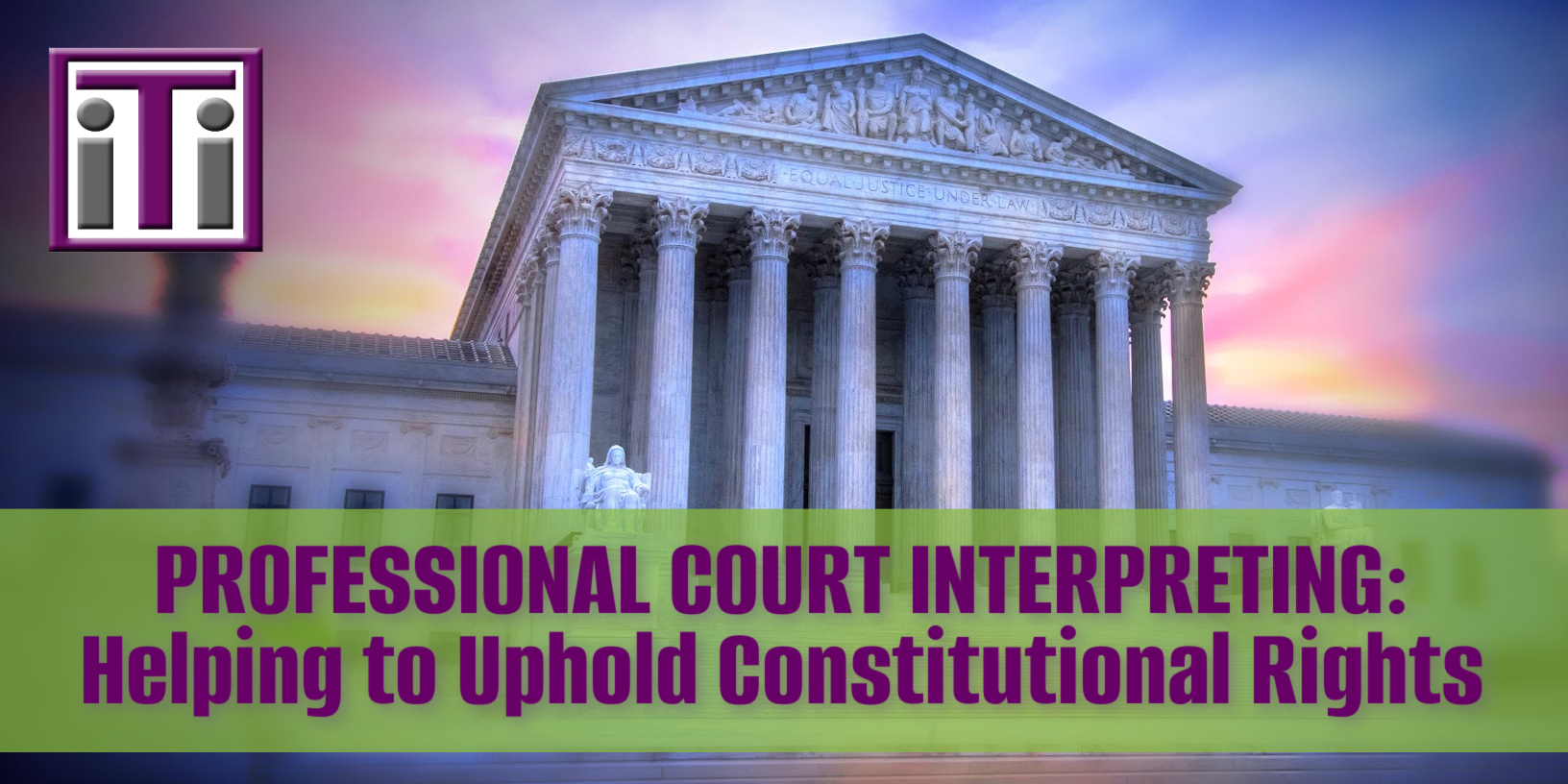
Established in 1986, Interpreters and Translators, Inc. (iTi) began its journey as a court interpreting service. Through the years, legal language services remain among our core strengths, and the company has witnessed firsthand the significance of accurate interpretation in the courtroom.
This article delves into the crucial role of court interpreters and the potential consequences of misinterpretation.
Courts are Required to Provide Interpreters
Title VI of the Civil Rights Act of 1964, entitled National Origin Discrimination Against Persons with Limited English Proficiency, requires “reasonable steps to provide meaningful language access” for limited English proficient (LEP) individuals, and this has long been interpreted to include court proceedings. Many states have their own laws and regulations regarding court and legal interpreting, but the enforcement of these regulations varies greatly between states.
Interpreting Mistakes Can Jeopardize Justice
In the intricate world of legal proceedings, the accuracy of interpretation is paramount. Misinterpretations, while seemingly minor, can have dire consequences. For instance, in a situation highlighted by PBS Newshour[i], a Spanish speaking defendant was incorrectly accused of “rape” when the interpreter mistakenly translated a traffic “violation” as “violación” – a word for “rape” in Spanish. This innocent misinterpretation caused considerable distress to the defendant.
In another case a court interpreter, although fluent in Hindi, could not match the pace required for comprehensive simultaneous interpretation. Consequently, Canadian Supreme Court Justice Casey Hill declared a mistrial[ii]. Upon reviewing the audiotapes, Umesh Passi, a member of the New York State Bar Association, discovered the interpreter frequently summarized instead of providing a verbatim translation.
Court Interpreting for the Deaf and Hard of Hearing
In 2014, Abreham Zemedagegehu, an immigrant from Ethiopia, was incarcerated for 40 days due to a false accusation. The real tragedy, however, was the denial of sign language interpretation services[iii], a violation of the American with Disabilities Act[iv]. Zemedagegehu’s experience underscores the gravity of providing accurate and timely interpretation.
Such cases are distressingly frequent. As the American Bar Association points out[v], many individuals with limited English proficiency regularly face legal proceedings without proper language services. This lack of accessibility jeopardizes their constitutional rights.
The Role and Responsibility of Court Interpreters
While the pitfalls of inadequate interpreting are evident, it’s essential to appreciate the rigorous standards professional interpreters must uphold. These professionals are bound by law to provide complete, accurate interpretation without altering, omitting, or adding information.
For attorneys and paralegals working with legal interpreters, here are some best practices to consider:
- Always brief the interpreter about the case basics.
- Address the client directly, not the interpreter.
- Maintain a natural tone and pace, pausing for the interpreter (in the case of consecutive interpreting).
- Avoid jargon, legal terms, and acronyms when possible.
- Respect the nuances of translation; some languages may require more or fewer words to convey the same message.
Interpreters themselves follow a stringent code of conduct. While individual state court systems’ regulations have slight variations, some requiring oral and/or written examinations, they share basic tenets. This code emphasizes accuracy, impartiality, professionalism, and confidentiality. The goal is to ensure the interpreter remains an unbiased conduit of communication.
A Beacon of Progress
Despite the challenges, many states are actively enhancing their court interpreter services. By recruiting trained interpreters and mandating testing requirements, they aim to ensure justice is both blind and multilingual.
In April 2016, Supreme Court Justice John Roberts welcomed a group of 12 deaf and hard-of-hearing lawyers to be sworn in as members of the Supreme Court bar. During the ceremony, Robers signed “Your motion is granted” using American Sign Language (ASL)[vi]. Roberts learned to sign the phrase specifically for the occasion, and he is believed to be the first chief justice to use sign language from the bench.
Such actions, although largely symbolic, resonate deeply within communities that have long grappled with communicational hurdles.
In conclusion, while the path is riddled with challenges, the relentless pursuit of ensuring clear communication in courts is essential. Companies like iTi, with their rich history in court interpreting services, stand as sentinels in this journey towards a more inclusive legal system. Consider iTi to find a certified court interpreter and for all of your legal interpreting services.
| Talk to an Expert |
[i] https://www.pbs.org/newshour/nation/bad-translation-by-court-interpreters-injustice
[ii] https://www.thestar.com/news/crime/mistakes-by-hindi-interpreter-leads-to-mistrial-in-brampton-sex-assault-case/article_19c8375b-2cc4-5b03-8e3b-bf5cc76283a3.html
[iii] https://www.legalreader.com/judicial-mistranslation-changed-the-outcome-of-a-court-case/
[iv] ADA Requirements: Effective Communication | ADA.gov
[v] Ensuring Equal Access to Justice for Limited English Proficiency Individuals (americanbar.org)
[vi] Chief Justice John Roberts Uses Sign Language As Deaf Lawyers Sworn In | HuffPost Latest News






Comments are closed here.